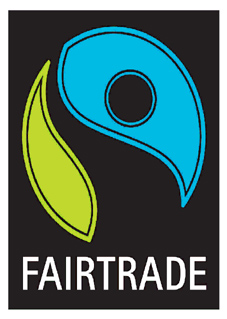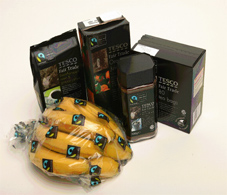
History of Ethical Trade
The demand for ethical trading first arose in the 1990's, when the food industry began to become increasingly consolidated. This trend continues in 2008, and has resulted in the emergence of a handful of food ingredient giants controlling the global market. Several of these companies source their raw materials from developing regions such as Asia and South America. In 1998, the Ethical Trading Initiative (ETI) was established as an alliance between retailers, trade unions and non-governmental organizations. Globally, the ETI aims to promote respect and fair treatment for the rights of poor workers in factories and on farms. The awareness of ETI's campaign has increased the pressure on major manufacturers to ensure decent working conditions for their employees throughout the supply chain. The intensification of ethical pressure since 2000 has encouraged a large number of companies following this trend to incorporate various ethical sourcing policies, to address the growing public concern over labour supply-chain issues. Social and environmental concerns now top the list of corporate investment criteria in addressing supply chain labour conditions. For instance, the Indian-based Tata Tea Limited has received commendations for their ethical initiatives, which involves sustainable "worker-shareholder" models, free housing, health care and community development facilities. Additionally, Tata also run tree-planting and endangered-wildlife programs, in combination with alternative ventures in the field of renewable energy plantations.Current Scenario
With concerns growing over economic concerns in the third world, some western consumers have become more socially responsible with regard to the goods they purchase. Traditionally infamous for its free market sourcing policies, the scenario within the food industry is set to change with the rise of the Fair trade movement. Currently, the food industry is populated by thousands of small suppliers in addition to the backwardly integrated large conglomerates. The presence of such small suppliers allows for ambiguous sourcing ethics. However companies are now realizing that the combination of "business" and "ethics" can create a positive brand image, and more importantly, allow traceability within the supply chain. The stability of the supply chain is one of the key driving factors in implementing ethical sourcing. Consumer demand for ethical foods has risen dramatically between 2004 and 2008, and as a result, various Food industry participants have joined the Fair trade bandwagon. A study by the UK's Co-operative Bank in 2006 estimated that "ethical" food spending, including organic, fair trade and free range purchases, was in the region of ?.1 billion.
Who's the Fairest of them All?
Below are examples of some of key market players involved in the ethical consumerism trend. TaM??czy?ni













